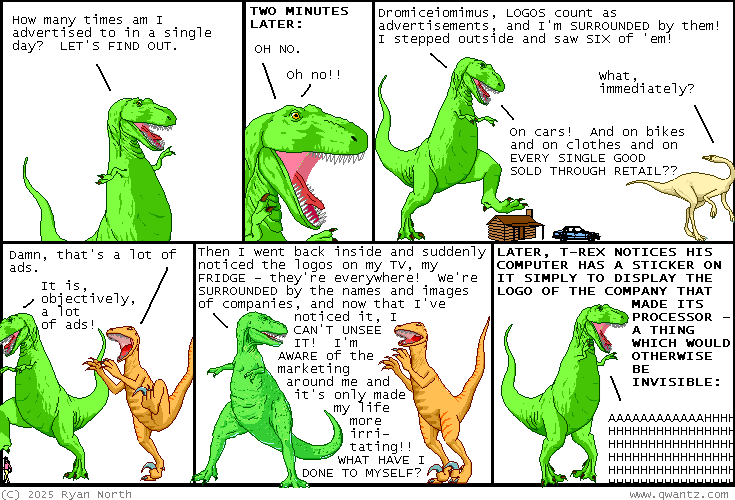Reading

We’re thrilled to introduce Dominique De Cooman, one of the newest members elected to the Drupal Association Board, with his term beginning 1 November 2025.
Dominique is the co-founder, CTO, and co-CEO of Dropsolid, where for more than a decade he has been a driving force behind the company’s vision and growth. His work has focused on digital transformation, open digital experiences, and more recently AI transformation, helping companies, organisations, and governments stay innovative and sovereign in a fast-changing world.

There‘s no ‘one weird‘ happiness trick. Instead, here are five practices that are proven to help attain this elusive goal
- Video by The Well

Retracing Mark Twain’s path down the Mississippi, a filmmaker finds himself contemplating what it means to know a river
- by Aeon Video

The popular brain-disease model was meant to reduce stigma and explain addiction. It’s time to check whether it’s delivered
- by Chrysanthi Blithikioti & Ioana Alina Cristea

Same-sex marriage is an astonishing case of progress propelled by democracy, in the face of public spite and misinformation
- by Michael Fuerstein
The last two weeks have had a huge focus on getting the providers into the new 1.2.0 structure, beta blockers done and manipulating the AI Agents system so it handles specific cases that we see happen when we are working on the Canvas AI module.
Progress Service for Agents
When setting up a user interface for agents, complex agents can take several minutes to load. If users are shown only a loading spinner during this time, many will assume the system has failed and abandon the page.
Another challenge arises during development, when we need to debug the agent’s behaviour. A useful debug tool should be able to display the agent’s progress, which tools it has used, the contexts it has added, and other relevant details.
Come with me on my daily walk with my baby around Grangetown, Cardiff. At the bottom of Clare Road, heading south from Riverside, we pass a former night shelter (abandoned for five years now) obscured by mountains of rubbish dumped into its rotting shell. Further up the road, I recently passed a house in which […]
| archive - contact - sexy exciting merchandise - search - about |

| ← previous | September 22nd, 2025 | next |
A rugby league referee has copped the maximum $10,000 fine after an angry outburst bagging every error made by the players during a semi finals match he officiated last weekend. “I’m doing my best out there trying to ensure every... Read More ›
Week-end Wrap – Political Economy – September 21, 2025 by Tony Wikrent Trump not violating any law ‘He who saves his Country does not violate any Law’ Trump Stuns By Saying ‘I Don’t Know’ When Asked Directly NBC’s Kristen Welker ‘Don’t You Need to Uphold the Constitution?’ Joe DePaolo, May 4th, 2025 [mediaite.com] A […]
“Fler än 280 minderåriga flickor gripna för mord, familjer som lever i skräck. Det är hjärtskärande”, säger Orbán i klippet som han lade ut på X. Och det hade det verkligen varit. Om det vore sant … Så Kristersson röt tillbaka … Fast borde inte Kristersson snarare vara glad? Det borde vara utmärkt draghjälp inför […]
Three current Pentagon insiders told The Intercept that new Department of War rules are an egregious assault on press freedom. The post Unnamed Pentagon Officials Ridicule Hegseth’s Plan to Stop War Department Leaks appeared first on The Intercept. The real reason they pulled Jimmy Kimmel, the new paramilitary contractor in town, and more from The Lever this week.
. As the author of several books on the history of economic thought, yours truly cannot help but applaud Murphy’s plea for the importance of studying this field. In many works of doctrinal history, there is a tendency to read history backwards, focusing only on those theories and thinkers who appear to anticipate today’s established […]
Use to discuss topics unrelated to recent posts.
.Johan Asplund (1937–2018) was one of Sweden’s foremost and most original sociologists. When yours truly was a young student in the 1970s, taking a few courses in sociology, one of my great sources of inspiration was Johan Asplund’s wonderful little book On Saturation Processes (1967). I believe the feeling many of us harbour towards the […]
Misleading ads get muted, universal child care is here, a tech company gets caught cheating, and tenants step up.
Forced displacement inflicts a staggering emotional toll on families in Gaza. It also brings steep economic costs. The post Israel Gives Evacuation Orders Before a Bombing. Many Gazan Families Can’t Afford to Leave. appeared first on The Intercept. | ||